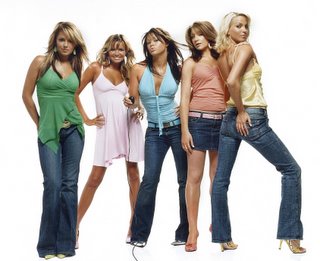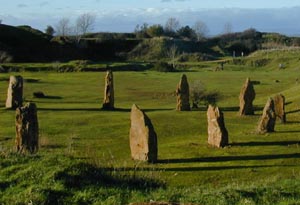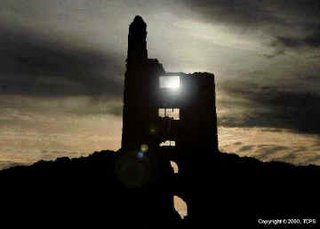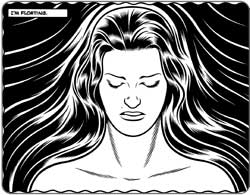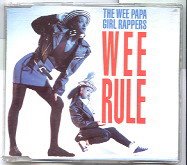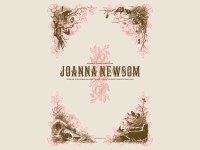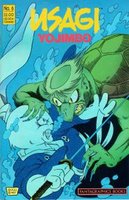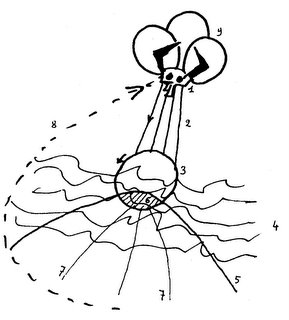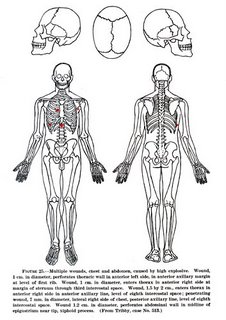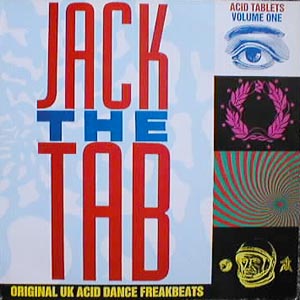
As a result of the previous Acid Tablets post, where I argued that PTV, Richard Norris and Dave Ball invented a version of Acid House which unfortunately got attenuated and dismissed and replaced, Richard Norris got in touch and I asked him a few questions about the Jack The Tab sessions:
It was a strange session indeed. We hadn't heard of acid house, we'd just heard the name, but it was full of possibility. Both Mr Orridge and myself were coming at an idea of psychedelic dance music from different directions, and the new recording equipment - Akai S900 sampler, Atari running an early version of Cubase - seemed to be timed perfectly to get our ideas out. What we were doing - splicing current beats from other sessions, bits of psychedelia, spoken word and movie fragments - wasn't exactly new. PTV and TG had worked in that way for some time, and we were aware of Cage, Burroughs, Eno etc.
Jack The Tab is full of wrong turns and slipped identities... there's really no pattern to the splatter; every track sounds like its identity is being formed in situ, as if the information being passed through the machines is itself starting to find its feet and is working out how, sometime in the future, it'll be centre stage...
As I said, we hadn't heard of any acid house - 3 house tracks had made the UK top 20 at the end of 87, beginning of 88 (Love Can't Turn Around, Jack Your Body, Jack The Groove), but I didn't hear a proper acid house tune (Adonis, No Way Back) until after we'd recorded the album late in 1987.
This is exactly what made Jack The Tab so great. There's just a ghost of knowledge present throughout the tracks and you have to listen carefully to hear any influences - certainly there's more of the psychedelic Bam Caruso underground here than there is anything resembling Jack Your Body which is a direction that got somehow derailed when the tribes resolutely failed to gather... if the psych-underground could've got it together with the dance machines we really might have had something; instead people abandoned 'rock' entirely, assuming it dead or absent, and the old punks stayed in their rooms, twiddling knobs and trying to work out Cubase.
MAARS, with it's conflation of dream-pop and DJ - another configuration abandoned at the source.
The key element to the working process was speed. Wehad two rooms, with a core of Gen, myself, Dave Ball,various PTV and Bam Caruso people working at the same time, sourcing clips, running through ideas, addingparts. No track took longer than an hour, most vinylstuff was spun in live, some material went on straight from Walkman (including varispeed). Most of the live stuff (60s influenced keyoboards, guitars, vocals) were done in one take. This gave the record a veryloose feel but I think is responsible for its particular energy.
Speed is of the essence in this album; you can feel the hunger, the need to get it out quick...
A little later techology designed to speed things up would make the music faster and the production of it slow down considerably; the mixmasters would start to develop OCD, tiny parameters would blink and send them crazy with tweaking. Obsession was all. The world started to venerate the most autistic of producers, adding a feast of Protestant Work Ethic to the art of the mix. Tracks done in an hour? Try just the organ tweaks and damping taking twice that long.
Soon, hi-hat EQing will start to creep into conversations and by then the music will already have started to limp away... this is Punk as 5000 piece jigsaw and it's a huge miscarriage of understanding of what Acid House should have been.
That said...
We were very lucky to have a first rate, up and comingengineer called Richard Evans working on it. His enthusiasm and speed really added to the project. Idon't think I've ever seen anyone get ideas down so quickly - for a long time afterwards I thought that all sessions should run like this, making it particularly difficult for many an engineer/programmer!
Most sessions should. Where's the band?
We didn't really know about acid house, as it was yet to be invented - we just wanted to make a mad psychedelic dance record. I'm glad we hadn't heard any, as that would have limited our horizons and probably made us make a more dance orientated record, with less twists and turns. I still don't know how influential the record was, I certainly make no claim for it.
Richard Norris is a modest guy; you can hear this record over most of electronica in the next 20 or so years though many still haven't come to terms with what it might mean to have a true psychedelic dance music, a music that confounds expectations, a music that refuses to stay still and is sometimes irritatingly obtuse. My friends didn't like it, thought it was a lost opportunity, wanted more Timothy Leary and squiggles, wanted to be able to dance (they failed to make a dance record unless they danced like the fungus-eaters of Crewkerne Straits)
The band names were random - its me and Genesis onmost tracks, with the same core bunch of people on most of it. They were just names suggested by the music or the voices in the music. Or some other ideas we'd been delving into; can't quite pinpoint it. There's certainly some ritual stuff in there. The sound of Genesis and Paula making love is all over one track.
That Paula again, that panting lady (why no noise from you Gen?)...

